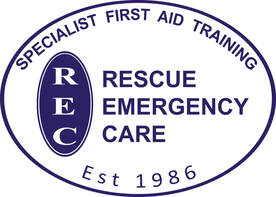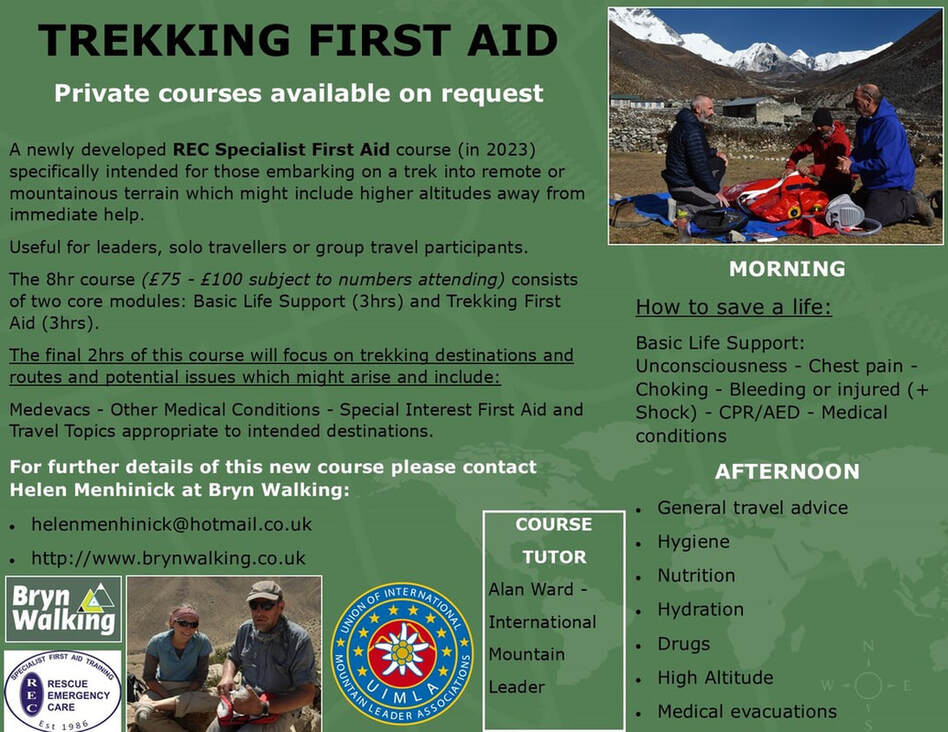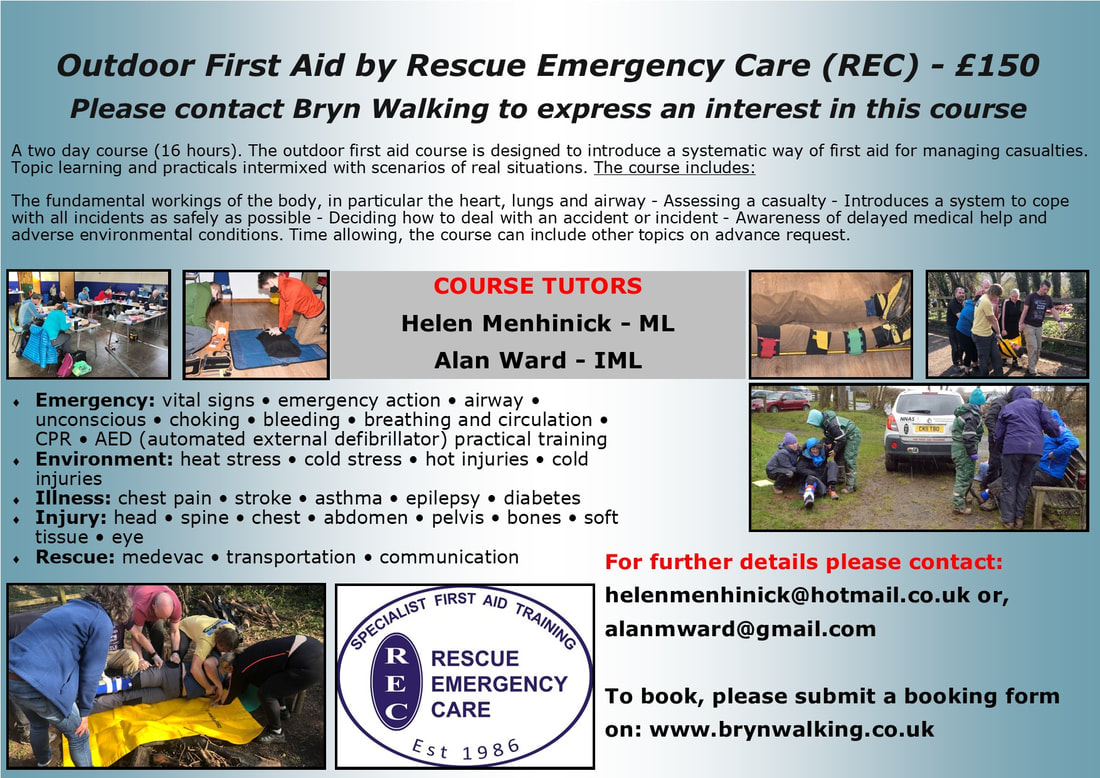Please see our 'what's on' page for course dates
TRAVEL & EXPEDITION FIRST AID (16 HR)
A two day advanced course (16 hours). The travel and expedition first aid course is designed to introduce a systematic way of advanced first aid for managing casualties. Topic learning and practicals intermixed with scenarios of real situations. The course includes:
Development of skills gained at emergency level
In-depth review of emergency care topics
Advanced techniques • skills • development
Review of special interest topics by the candidates
The Content
First aid training with the REC scheme is easy and fun. The course is progressive by building on each session, introducing new scenarios to test all techniques for:
Environment: hazards • cold • heat • chemicals • poisons • light • toxic substances
Escort: vital signs • psychological • monitor • fluids • stretcher • splints • pain control
Illness: chest pain • stroke • asthma • epilepsy • diabetes • poisons • hyperventilation • mental
Scenarios: triage • incident management • emergency plans • action cards
Travel: dislocations • wound management • tropical diseases • gastric illnesses • high altitude first aid and portable altitude chambers
The Assessment
Travel first aid is assessed by observation of practical skills throughout the course and written assignmentsREC was formed with the philosophy that anyone should have the opportunity to learn and to teach first aid.
The Candidates
All lay candidates will have completed the Level 4 Advanced course
Will be able to take control of an incident and direct standard First Aiders
Will be able to deal with more complex problems and use advanced methods
The Qualification
The Travel & Expedition First Aid course if certified for three years
REC has a wide range of courses available to meet the needs of clients, whether it is in an outdoor environment or within a workplace. The courses are delivered in a modular and structured programme which allows the courses to be easily adapted to suit individual needs.
A two day advanced course (16 hours). The travel and expedition first aid course is designed to introduce a systematic way of advanced first aid for managing casualties. Topic learning and practicals intermixed with scenarios of real situations. The course includes:
Development of skills gained at emergency level
In-depth review of emergency care topics
Advanced techniques • skills • development
Review of special interest topics by the candidates
The Content
First aid training with the REC scheme is easy and fun. The course is progressive by building on each session, introducing new scenarios to test all techniques for:
Environment: hazards • cold • heat • chemicals • poisons • light • toxic substances
Escort: vital signs • psychological • monitor • fluids • stretcher • splints • pain control
Illness: chest pain • stroke • asthma • epilepsy • diabetes • poisons • hyperventilation • mental
Scenarios: triage • incident management • emergency plans • action cards
Travel: dislocations • wound management • tropical diseases • gastric illnesses • high altitude first aid and portable altitude chambers
The Assessment
Travel first aid is assessed by observation of practical skills throughout the course and written assignmentsREC was formed with the philosophy that anyone should have the opportunity to learn and to teach first aid.
The Candidates
All lay candidates will have completed the Level 4 Advanced course
Will be able to take control of an incident and direct standard First Aiders
Will be able to deal with more complex problems and use advanced methods
The Qualification
The Travel & Expedition First Aid course if certified for three years
REC has a wide range of courses available to meet the needs of clients, whether it is in an outdoor environment or within a workplace. The courses are delivered in a modular and structured programme which allows the courses to be easily adapted to suit individual needs.



